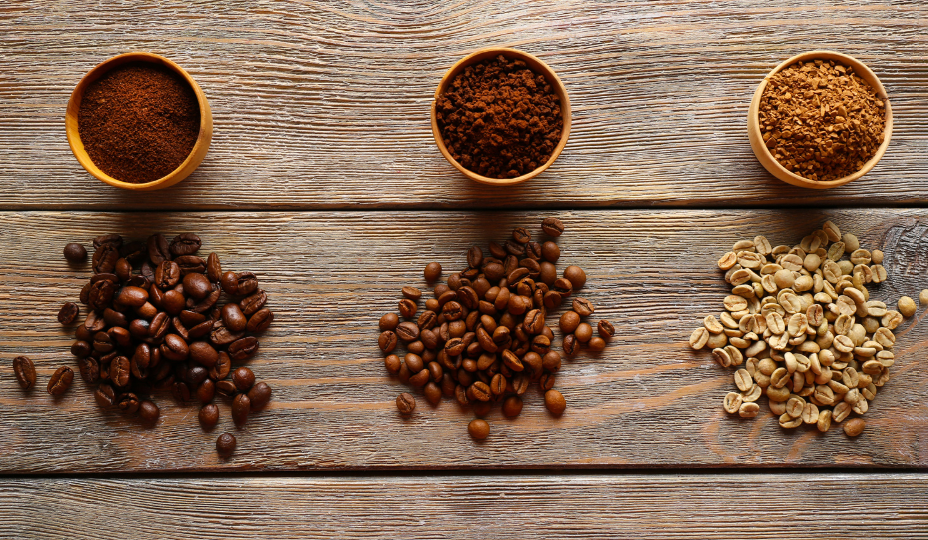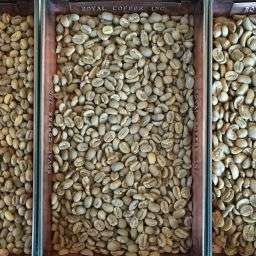
The concept of eating coffee beans, rather than brewing them, introduces a unique way to enjoy coffee’s rich flavors and benefits. This approach not only offers a concentrated taste experience but also maximizes the inherent health benefits of the coffee beans.
Unlike brewed coffee, eating the beans directly provides a fuller spectrum of compounds, including essential oils, antioxidants, and fibers, which are often diminished or lost during the brewing process.
Health Benefits of Coffee Beans
Caffeine, a well-known stimulant, is present in higher concentrations in whole coffee beans compared to brewed coffee. This concentrated form can lead to an immediate energy boost, heightened alertness, and improved cognitive functions.
Research and anecdotal evidence suggest that consuming coffee beans may enhance memory, performance, and mood more effectively than drinking coffee (Coffee Affection, Bean Poet).
Antioxidants and Fiber
Coffee beans are rich in antioxidants, such as chlorogenic acids, which offer numerous health benefits. These compounds are known for their ability to support cardiovascular health, reduce inflammation, and even provide anti-aging benefits. Moreover, coffee beans are a good source of dietary fiber, which is beneficial for digestive health and the immune system.
This high antioxidant and fiber content in coffee beans makes them an excellent addition to a health-conscious diet (CoffeeYak, Coffee Affection).
Weight Management and Metabolic Benefits
The caffeine in coffee beans also plays a role in weight management and metabolic health. Studies have shown that caffeine can enhance metabolic rate, increase fat burning, and suppress appetite, contributing to weight loss efforts.
Additionally, the physical act of eating coffee beans may provide a more sustained energy release, aiding in improved endurance and performance during physical activities (Batch Coffee, Bean Poet).
Best Types of Coffee Beans for Eating
The two primary types of coffee beans, Arabica and Robusta, differ significantly in taste and nutritional profile. Arabica beans are favored for eating due to their smoother, more complex flavor profile. They are generally less bitter and more aromatic than Robusta beans, making them more palatable for direct consumption (Full Coffee Roast).
Medium and Dark Roasted Beans
The roasting level of coffee beans affects their flavor and suitability for eating. Medium and dark-roasted beans are preferred for their deeper, nuttier flavors that emerge during the roasting process. These roasting levels also reduce the beans’ inherent bitterness, making them more enjoyable to eat (Full Coffee Roast).
Flavored and Chocolate-Covered Coffee Beans
Flavored and chocolate-covered coffee beans are particularly popular for snacking. The addition of flavors or chocolate coating enhances the eating experience by balancing the coffee beans’ natural bitterness with sweetness and additional flavors.
These variations are not only delicious but also offer a unique way to enjoy the rich taste and benefits of coffee beans (Roasty Coffee, Taylor Lane).
How to Consume Coffee Beans
To enjoy coffee beans as a snack, consider basic preparation methods that enhance their flavor and texture. Roasting coffee beans at home allows for customization of the roast level, bringing out the bean’s inherent flavors. After roasting, beans can be lightly salted or coated with spices for a savory treat.
For a sweet option, homemade chocolate-covered coffee beans are a popular choice. Melt chocolate, dip the roasted beans, and allow them to cool on parchment paper. This not only adds a layer of sweetness but also complements the coffee’s natural bitterness (Roasty Coffee).
Creative culinary applications include incorporating ground coffee beans into desserts or meals. Coffee beans can be ground and added to spice rubs for meats, enhancing the flavor with a rich, coffee-infused crust. In desserts, finely ground beans can be mixed into batters for cakes or brownies, offering a subtle coffee flavor and added texture.
These methods provide innovative ways to enjoy the distinctive taste of coffee beans beyond traditional brewing (Taylor Lane).
Considerations and Precautions
While coffee beans are a source of antioxidants and nutrients, there are potential risks and side effects associated with consuming them in large quantities. These include increased heart rate, acid reflux, and the possibility of caffeine overdose. Eating coffee beans can lead to a more rapid absorption of caffeine compared to drinking brewed coffee, which may exacerbate these effects.
To mitigate these risks, it’s important to consume coffee beans in moderation and be mindful of total daily caffeine intake (Coffee Affection, Bean Poet).
FAQs
Common questions about eating coffee beans often revolve around the safe quantity to consume daily and their impact on weight loss. Generally, it’s advised to limit coffee bean intake to avoid exceeding the recommended daily caffeine limit.
Eating a small number of coffee beans can provide a quick energy boost without significant caloric intake, potentially aiding in weight management. However, individuals should consult health professionals to tailor advice to their specific health conditions and dietary needs (Batch Coffee, Coffee Affection).
Final Thoughts
In summary, coffee beans offer a unique and flavorful snacking option, packed with health benefits when consumed in moderation. Whether enjoying them roasted, chocolate-covered, or as part of creative culinary creations, it’s essential to be mindful of the potential risks associated with caffeine.
By adhering to recommended consumption guidelines and incorporating coffee beans into a balanced diet, coffee enthusiasts can safely enjoy the rich and diverse flavors these beans have to offer.









